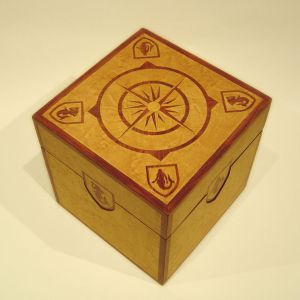What’s on Your Life List?
There’s a list I think we all should have. It’s kinda silly, but then so is life.
It’s about your heart, and how it appreciates the world around you.
Not your mind . . . that cold gray blob of reason, analyzing and working things out and planning and thinking about buying more stuff, because it’s there dammit! Okay, I still do this myself, too . . . I don’t want to talk about it. It’s fine to enjoy those things, too. Just don’t forget to enjoy, well, Life!
This is about what makes you truly happy. You’d be surprised: It’s mostly little things.
I beseech you, make a list of these things and tack it up where you can see it. Life gets busy–it would be a shame to get to the end of it and realize you missed all the good stuff. (Hint: the good stuff are moments, the things you can take with you).
“Failure is never quite so frightening as regret.”
~Cliff Buxton in The Dish
Just to get you started, I’ll give you a peek at my list:. I’ve had it for 4 years now and I haven’t had to change it much. You’re welcome. =)
My Live Life List
* Dream of living in Paris.
* Skip stones.
* Play an instrument
* Ride your bicycle everywhere.
* Listen for the train whistles.
* Write in cafes.
* Believe you can fly … look at airplanes you might want to buy.
* Feel beautiful, because you are.
* Know that your own Amelie will come to you when the time is right.
* Believe in love (and True Love).
* You are amazing and special and the right friends will always be there to appreciate this.
* If the beat strikes you, then Dance!
* Be in love with being in love.
* Remember: What would Melva do in this situation?
* Empathy – always.
* Cry when you need to.
Laugh when you can.
Smile all the time.
Happiness is contagious and will make its way back to you.* Live your life! Because you can do it better than anyone else can.


